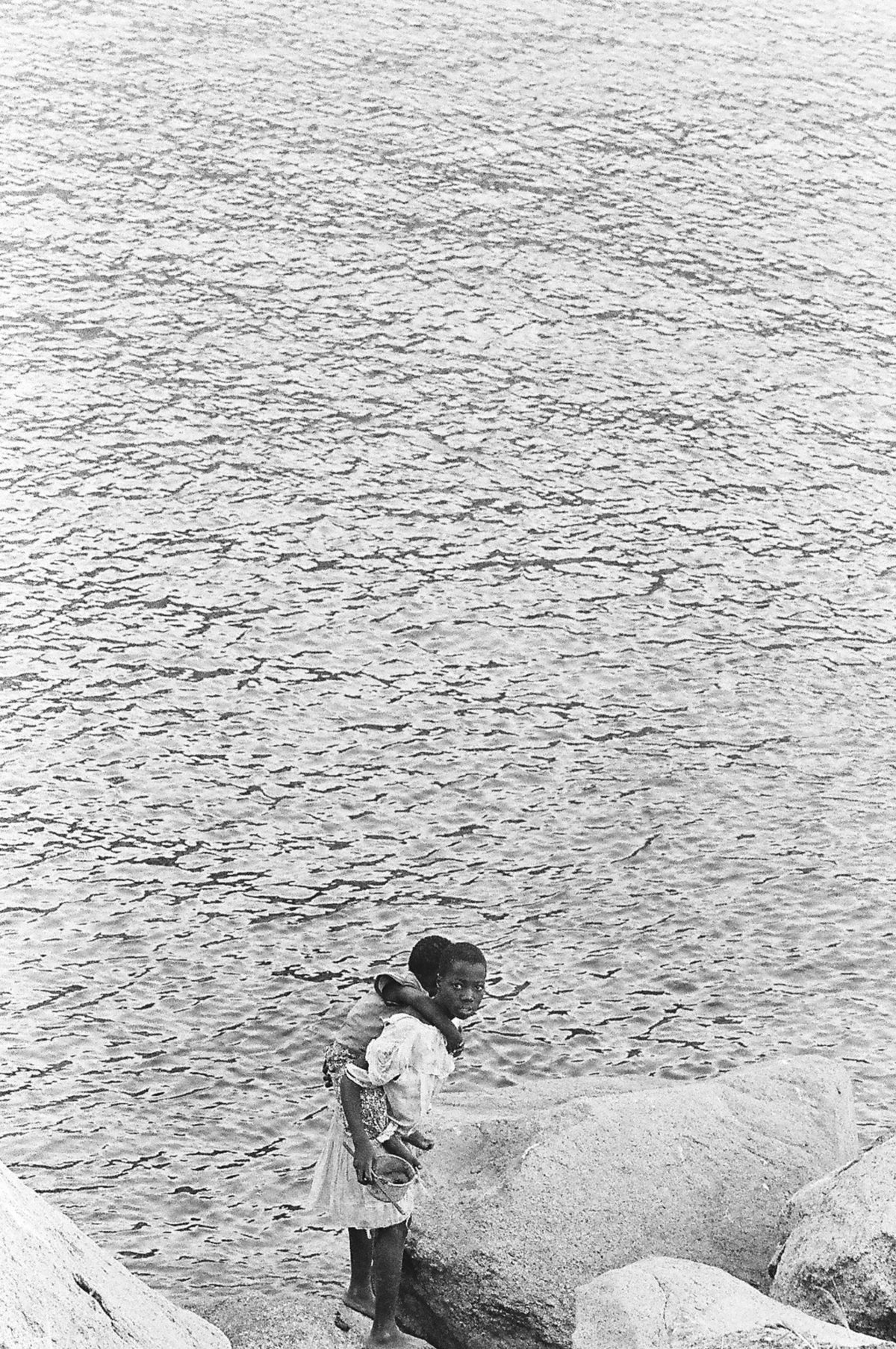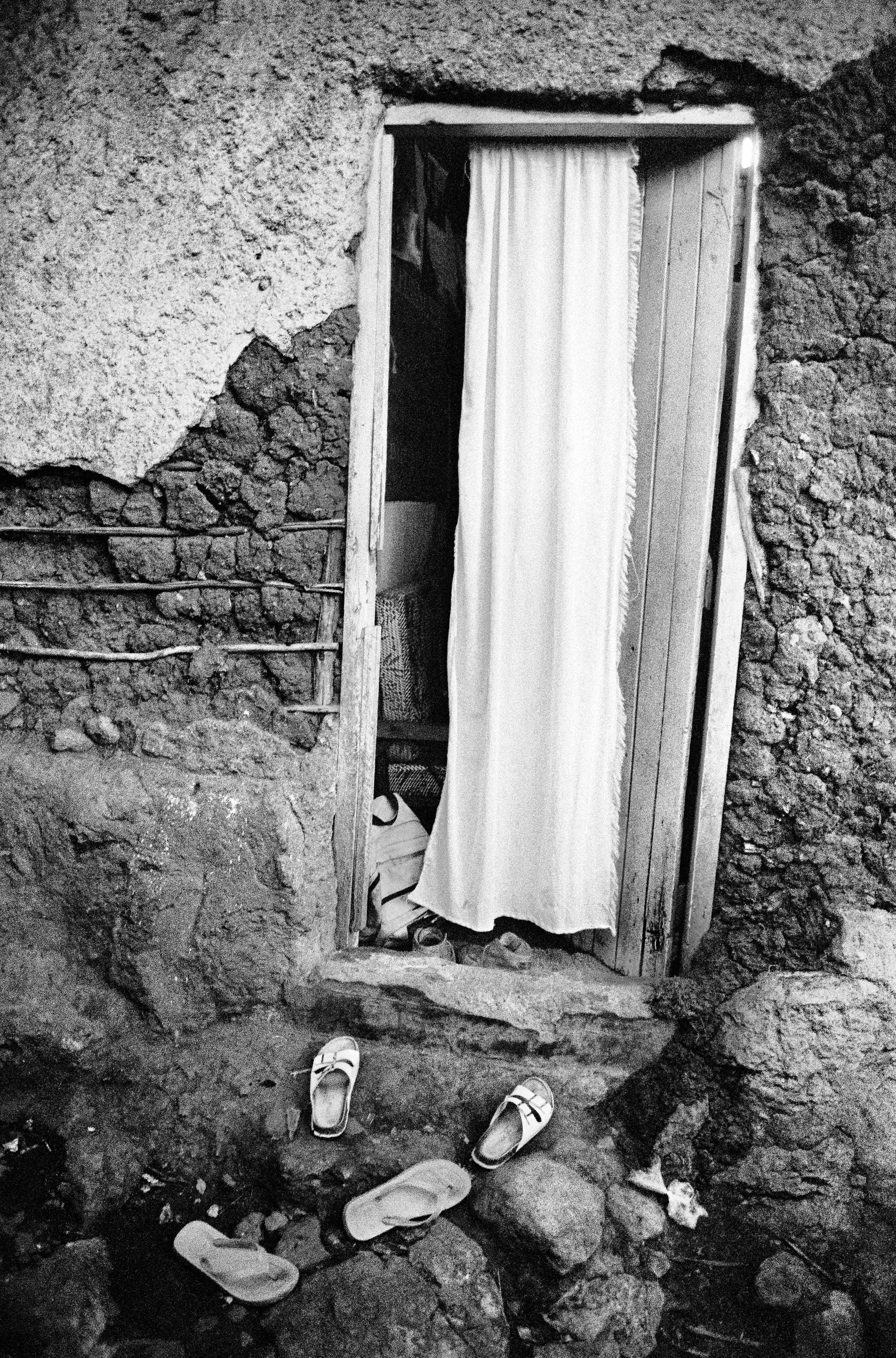From issue: #11 Mónica Alcázar-Duarte, Lucia Pizzani, Xaviera Simmons
Text by Tshepiso Mabula ka Ndongeni, Writer in Residence.
Beneath the cracking corrugated iron roof of the four room house I used to call home; we’d shout silent taunts at the musty African heat. Teasing her into submission. The air is often thick in these parts, carrying the untold stories of a city fathered by gold and mothered by the greed of the barons who own it. Between the grimy high-rise buildings and the humble cracks beneath its busy streets live stories waiting to be told by the growing generations of image makers and story tellers who traverse them. It is often said that the photographer’s duty is to speak on the ever-changing scenes of a society and then engage it by asking critical questions on how this society can be made better. In the works of great photographers like Ernest Kole, Santu Mofokeng and Andrew Tshabangu a lot of us, children of urban villagers, found the parts of ourselves the city’s rough terrain had stolen. I too saw myself between pages of books like the Footsteps and Chasing Shadows. In the vivid whispers of the spirits depicted in these images, I saw and felt the lived realities of me, my neighbours and family.
I often say to people that I am aa village native with a fairly township, urban discourse. The kind of African who lives beyond the negative neo-colonial headlines of some international publications. When speaking of the culture of photography in Africa, one cannot negate the fact that the camera and its holders played a part in the colonial landscape that once painted our continent’s history. In the same breath the camera is a tool being used to rewrite and repaint this history with all the vivid and nuanced colours with-which it truly exists and these are the images I intend to share during my time here. As the 2021 writer in residence, it is my hope that I can introduce you to the hidden treasures held inside the hearts and minds of new age image makers from the South Western side of life. In a world where we’re so saturated with images, it is important to have iconic image makers who will reflect the times while creating for the future. I hope in this period that the words and images I share will reflect the nuance we often fail to see in our everyday lives. I hope you’ll feel the scent of burning sage, beyond the typical colonial phase. I hope you will feel the rumbling of beating drums and the echoing thumps of Mapantsula dancing in the streets with a proud rhythm on their feet. I hope you will meet a people whose light shines from Morocco to Madagascar, the ones whose clicks illuminate the shimmering senses from the waters of the Cape to the pyramids of Giza. Beyond the hype are a people whose burning flames evoke the fiery spirits of Sankara and Biko.

I was first introduced to photography as a child growing up when the only local photographer, malome (uncle) Bob, was called by my father to come and make a portrait of our family one Sunday afternoon. The second time was when I first saw work by the award-winning photographer Santu Mofokeng. On both these occasions I can remember feeling very respectable and dignified; first when Uncle Bob came to make the portrait, my mother advised us to dress in our best Sunday clothes and secondly when I saw people who looked like me in Ntate Santu’s images living and loving even in while living with the inhumane conditions of apartheid. For many black, working class people the camera represents one of the first tools that were used to oppress and take their agency and humanity away from them. When I started making images I noted an air of tension between me and the people I was photographing, this was until we’d have a conversation that would ease them into the image making process. The camera in my hands became an avenue to open conversations about the changing landscape of a post-apartheid South Africa. In the right hands the camera can be transformed into a tool for real and genuine liberation. The narrative of silenced ‘subjects’ who are often overpowered by the photographer and their intimidating camera has been a critical key point in how we use photography to reflect the stories of the people in our images respectfully and thoughtfully. My aim is to create such critical conversations and engage audiences on the politics of seeing and being seen.
Africa was once an image of hopelessness; it was the place where rumbling thunders and scolding heat were once the backdrops to a theatre of hungry children running between rusty dwellings. These gut-wrenching images were burned so deeply in the minds of audiences that they continued to paint the incomplete image of a people more nuanced than what is known. A new generation of story tellers is rising and now more than ever it is becoming increasingly important to shed light on the work they are creating so that we can shift the conversation and look forward to rewriting the missing parts of history as it is. Welcome to the south western side of life where the laughter of children and the mournful sorrow of mothers are both equally integral tools in building the right kind of archive and telling the right kind of story for future generations.
Photography+ is supported by MPB.


